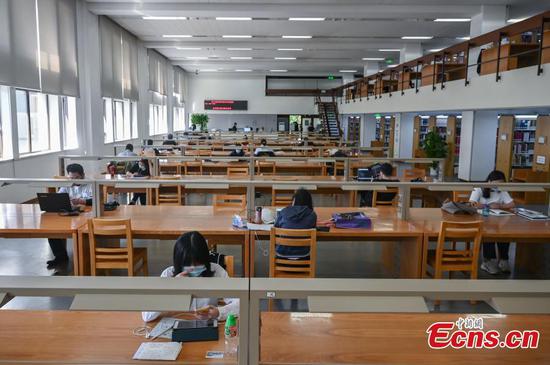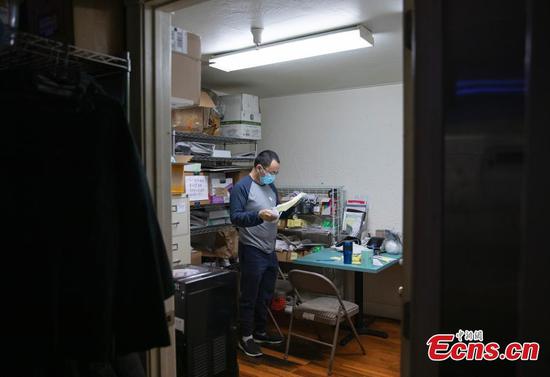Japan's current account surplus dropped 32.1 percent in March on year, as exports and the travel balance nosedived owing to the effects of the global COVID-19 pandemic, the government said in a report on Wednesday.
Japan logged a current account surplus of 1.97 trillion yen (18.41 billion U.S. dollars) in the recording period, marking the 69th successive month the current account has been in surplus, the Finance Ministry said.
The ministry also said in its preliminary report that the country's goods trade surplus dropped 85.2 percent from a year earlier to 103.1 billion yen (963.92 million U.S. dollars) in the recording period.
Exports fell 12.2 percent to 6.20 trillion yen (57.96 billion U.S. dollars) as the virus pandemic hit overseas demand, while imports declined 4.2 percent to 6.09 trillion yen (56.93 billion U.S. dollars), marking the 11th successive month of decline, owing in part to energy prices declining as well as consumer demand slumping amid the pandemic.
The travel surplus plummeted 86.5 percent to 24.5 billion yen (229.06 million U.S. dollars), marking the second straight month of decline, as the number of foreign visitors to Japan tumbled and thus tourist spending, in twine with outbound trips made by Japanese citizens sharply falling in the recording period owing to the global pandemic, the ministry said.
Services trade, meanwhile, logged a surplus of 72.0 billion yen (673.20 million U.S. dollars), dropping 77.6 percent, the government's data showed.
Japan's primary income, which reflects returns on investments made overseas, saw a surplus of 2.06 trillion yen (19.26 billion U.S. dollars), falling 4.0 percent, the ministry also said.
In fiscal 2019 ending in March, Japan recorded a current account surplus of 19.76 trillion yen (184.75 billion U.S. dollars), rising 1.4 percent from the previous fiscal year.
In the same period, the goods trade surplus stood at 647.8 billion yen (6.05 billion U.S. dollars), an increase of 2.2 percent, the ministry said.
Japan's current account surplus is one of the broadest measure of its trade with the rest of the world.
The data is keenly eyed by the Bank of Japan (BOJ) and the Finance Ministry ahead of new potential policy changes or monetary easing or tapering measures.
In Japan, the current account surplus increases the nation's net foreign assets by the corresponding amount, and a current account deficit does the reverse.
Both the Japanese government and private payments are included in the calculation, and it is called the current account because goods and services are generally consumed in the current period. Enditem


















































